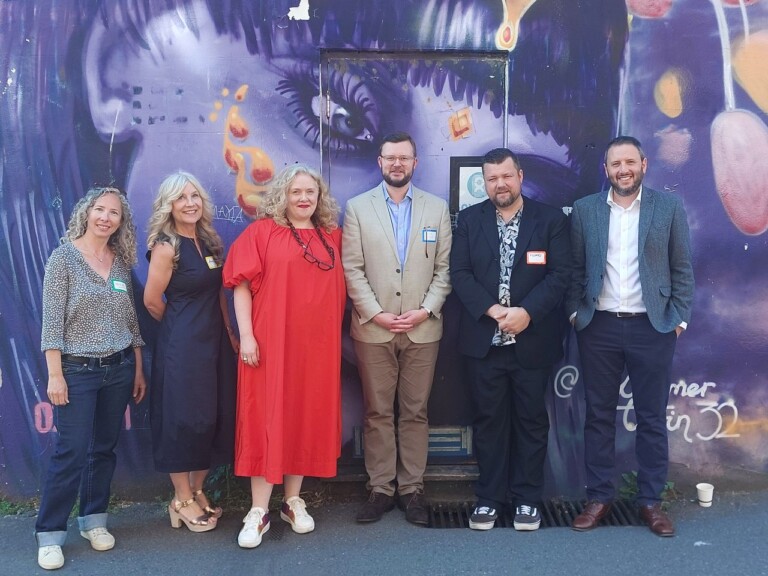Living in the light of female ambition

As the world celebrates International Women’s Day, a young RSA Fellow asks how we can accelerate progress on gender equality if society continues to villainise women and girls for seeking recognition or aspiring to leadership positions?
Comment spotlight
Are you an RSA Fellow? Submit your original article to Circle and it could be featured as the next Comment spotlight.
This Comment is part of our Spotlight series highlighting the most engaging articles submitted to the Comment space on Circle from Fellows. If you have an article you would like to share with the Fellowship, click the link to upload it now.
When I was in fourth grade, my school held a reading contest. A winner would be selected from each class, so there would be a mammoth 28 winners clasping manilla certificates.
As the contest was announced during registration, I felt the cold stare of my classmates descend on me. I was known to read widely and quickly, a habit which earned me unflattering nicknames and now drew disgruntled sighs. ‘It wasn’t fair’, they singsonged to our teacher, Mrs Chibwana. ‘No one else has a chance of winning,’ they pleaded as I sank lower and lower in my seat, drowning in a thick smog of embarrassment and self-disdain. This prize would be the end of me and so, with a logic matching my age, I decided not to win.
I still read as much as I always had. How else must one pass time? But I did not fill out my reading log. Each Monday, I handed in a card with two, maybe three, titles. Mrs Chibwana became suspicious by the second week, calling me to her desk for quick chats during working time. Was I being forgetful or bullied? Neither. I was actively running for second place.
A clever boy named Benjamin would win in my stead, the clear successor to my abdication. I liked him. He was someone to dissect Disney movies with. I was smug when his name was announced at the fateful assembly, ignoring the confused glances of classmates and clapping cheerily.
At eight years old, I knew without being told that recognition was a poisonous stain toavoid at all costs.
How can we inspire inclusion and accelerate progress if the social paradigms continue to villainise and endanger women and girls for seeking recognition or aspiring to leadership positions?
Accelerating progress
When I was reflecting upon and researching the 2024 UN theme for International Women’s Day – Invest in Women: Accelerate progress, my mind was alight with angles to explore. The answer is solving for the root causes, closing the gap in educational attainment, investment and domestic labour by creating equity through interventions with positive discrimination. Or the answer was taking an intersectional lens to social interventions, re-energising their ability to impact by actively recruiting female beneficiaries. Or actually the answer is building awareness of the opportunity cost and unequal burden of sexism and feminist campaigning.
All of these are worthy topics for a whole series of articles. The corner of the vast galaxy I landed upon was this: how can we inspire inclusion and accelerate progress if the social paradigms continue to villainise and endanger women and girls for seeking recognition or aspiring to leadership positions?
According to the Cambridge Dictionary, ambition is defined as ‘a strong wish to achieve a particular thing’. However, to scroll through newspaper headlines and comment sections is to realise that socially accepted synonyms for ‘ambitious woman’ include ‘nasty’, ‘sad’ and ‘sleeping their way to the top’. According to Princeton’s Bridging Divides Initiative, female politicians received 3.4 times more online attacks than male politicians.
The picture becomes grimmer for women of colour. For example, Amnesty International found that Diane Abbott received 45% of all abusive tweets sent to female MPs, 10 times the amount endured by any other female MP, likely due to her intersectional identity as a Black woman. This example is over-used but still incredibly relevant: the world is broken and unequal if a former secretary of state with years of government experience can lose the US presidential election to a reality TV star with a history of sexual abuse and poor financial decisions.
The volume of abuse and double standards exhibited in political discourse drains the few female leaders who do make it to the top. When Jacinda Ardern, who became the world’s youngest female leader in 2017 at the age of 37, resigned as prime minister of New Zealand it was because she “no longer had enough in the tank to do the job justice”.
Ambition penalty
This is not only true in the realm of politics. Research by BCG found that women enter the workforce with the same or higher levels of ambition as men but suffer an ambition penalty when they ask for more responsibility, opportunity or money, often being labelled as aggressive or demanding.
Again, taking an intersectional lens, Black women suffer the ‘Pet-to-Threat’ trap, coined by Kecia M Thomas as a phenomenon whereby they are praised for the calibre of work they produce while being blocked from advancement, often experiencing feelings of tokenism, invisibility, pressure to assimilate, mistreatment and being overprotected by colleagues.
If young girls look to role models in their own lives such as parental figures or teachers, research shows that they are fed gendered expectations. In my book, The Shuri Effect: Bridging the gap for young Black women in STEM, I explored ‘stereotype threat’, where an individual feels at risk of confirming a negative stereotype about a group they identify with, and ‘anxiety transfer’, a scenario where someone else’s concerns about your ability to perform can negatively impact self-perceptions. Both phenomena contribute to dampening the aspirations of a minoritised group.
We must allow women the full palette of emotions and tools to exist fully and contribute boldly to the world we share. Young girls should not feel how I once felt.
Gender inequality
While women in many parts of the world are entitled to more legal rights than before, this is not true worldwide. According to UN Women, at the current rate of progress, gender equality will be achieved in 286 years. From the politicised roll back of national laws protecting female bodily autonomy in the US to the annexation of Afghanistan by the Taliban to the gendered burden of conflict and persistent wealth inequality, in many ways we are going in the wrong direction.
Why does all of this matter? In the world today, similar to the world of yesterday, women do not have the social allowance to aspire to more. The only ambition society encourages from women supports the status quo and is secondary to men in ways which support the patriarchal project. There are contexts where ambitious women are supported, but there is a cap and you must not demand for more than has already been bequeathed to you.
This is a grim reality to accept and so we must not accept it. We must not accept it because that is unjust and because it is untrue. Strong ambitious women lead grassroots movements, the pursuit for justice, and are often the first to sound the alarm when things are not as they seem.
I am not demanding that women should be allowed to do everything that men can do. I aspire to something fuller. An allowance for self-actualisation, recognition of our best efforts and equitable support to get us there. As detailed by Egyptian journalist Mona Eltahawy in her incredible book, The seven necessary sins for women and girls, to disrupt the patriarchy, we must allow women the full palette of emotions and tools to exist fully and contribute boldly to the world we share. Young girls should not feel how I once felt.
This International Women’s Day and month, and every other day and month going forward, think about how you can shift the social temperature. Social laws are decided on and upheld by the collective, so please join in making the ripples which become waves which become the norm.
Lauryn Mwale is a writer, researcher, podcast host and board trustee.




